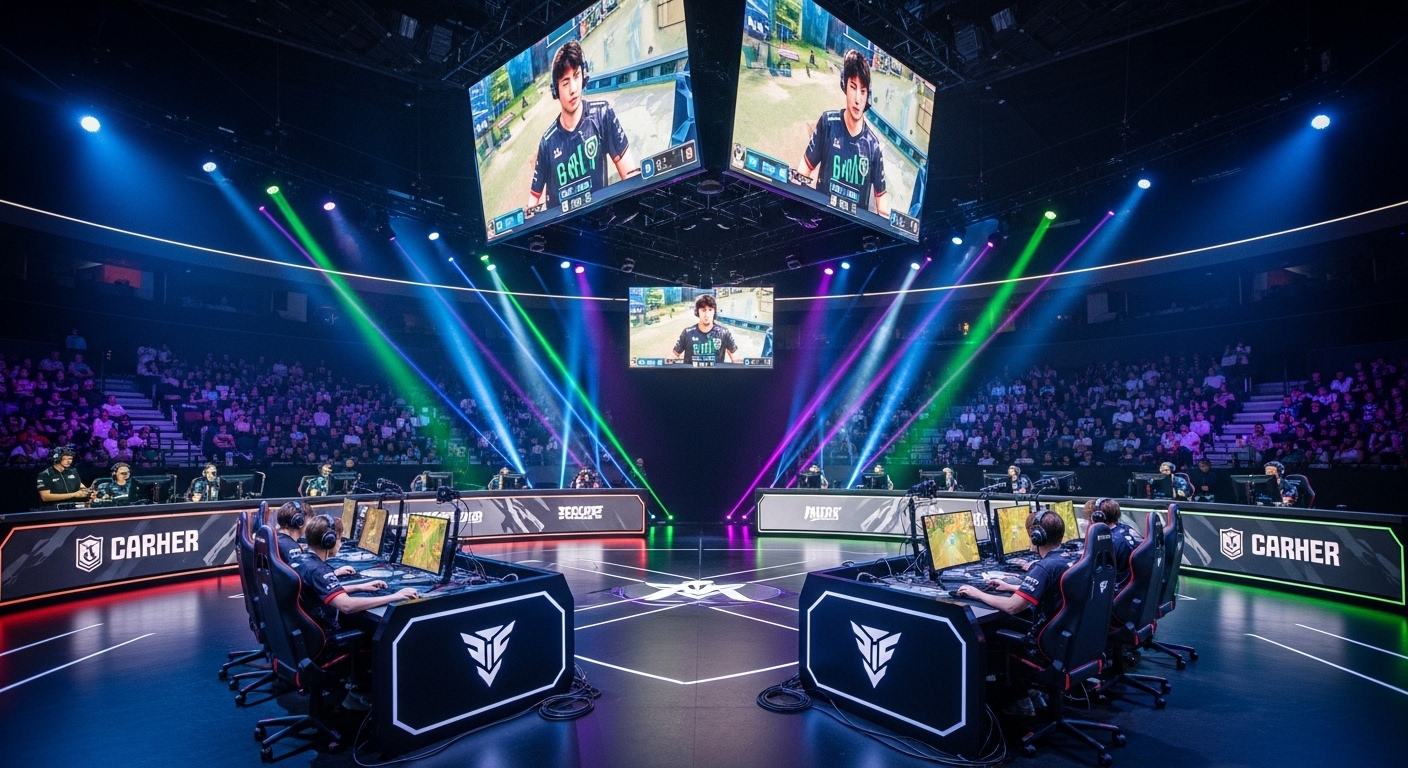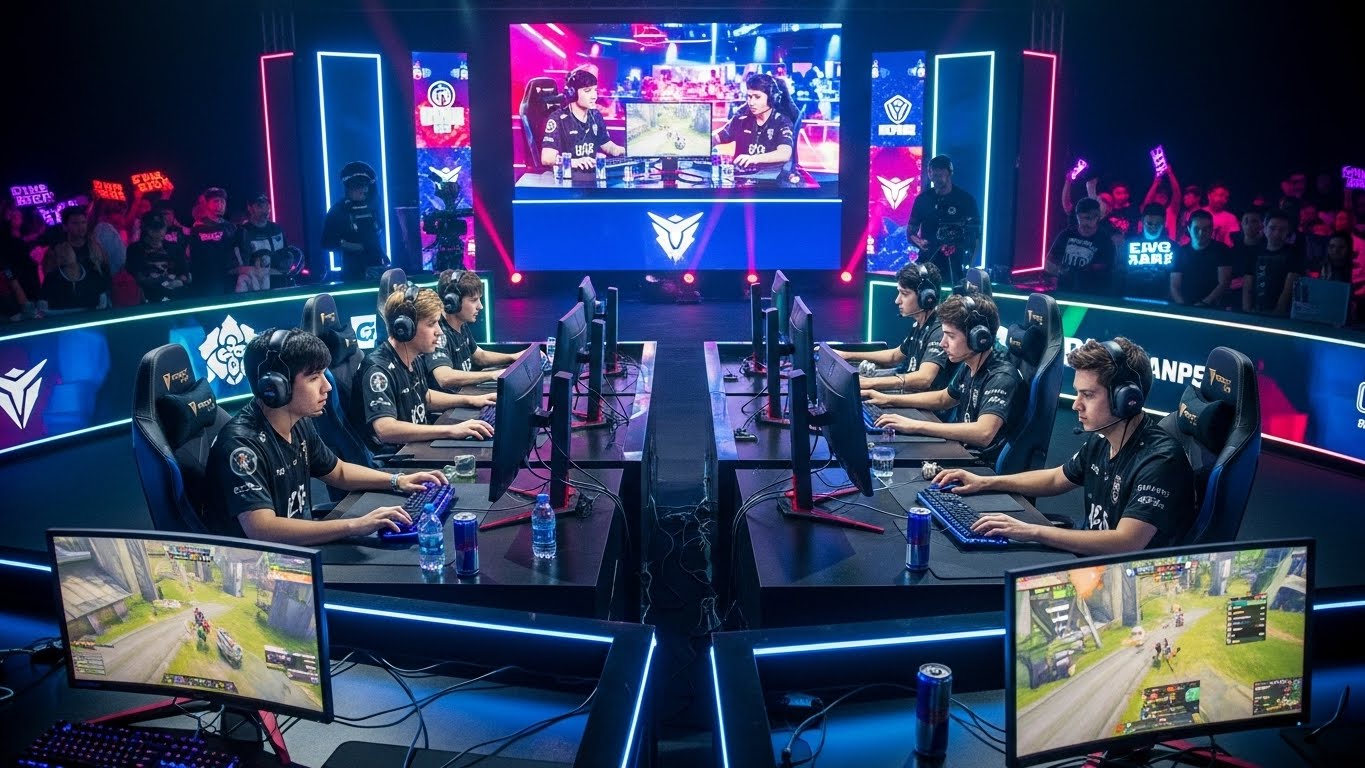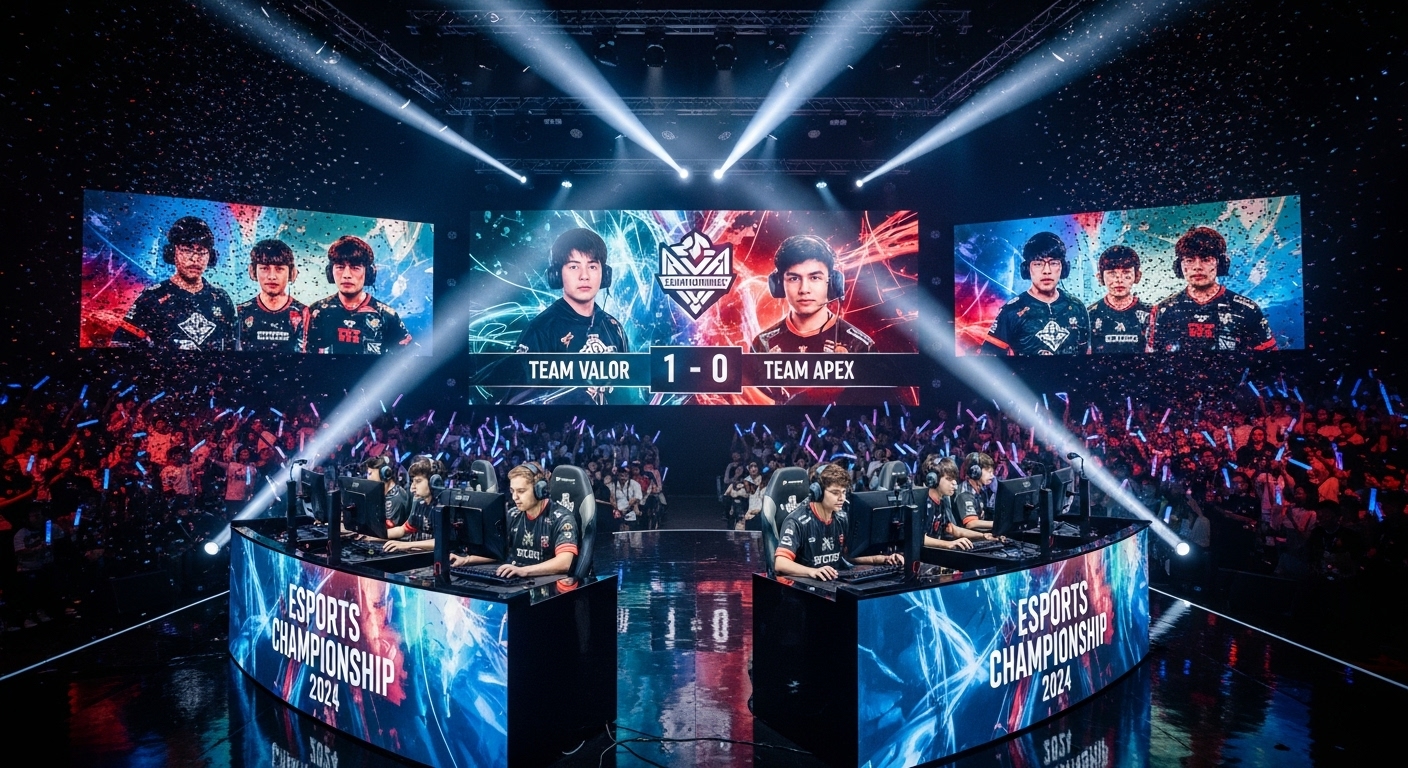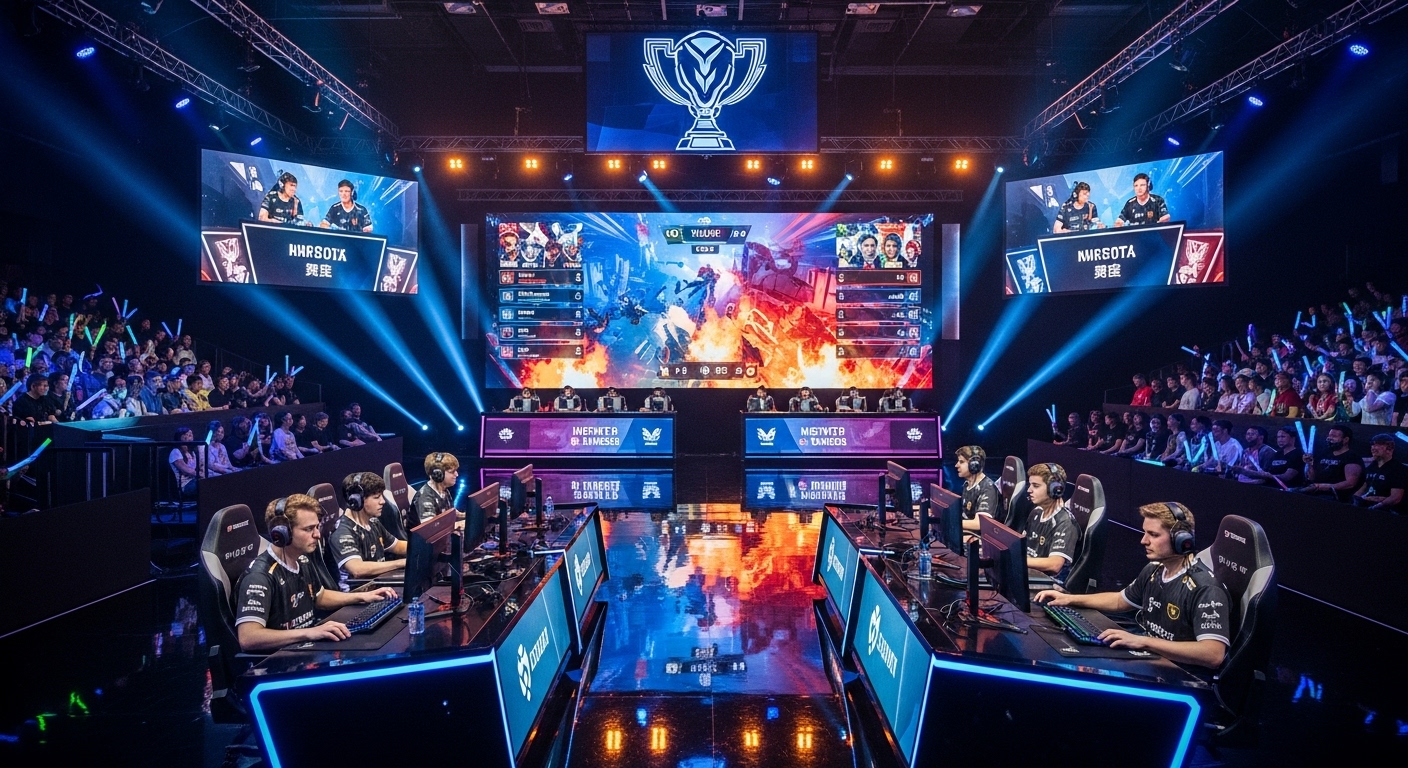In the high-pressure world of esports, every millisecond counts. The difference between victory and defeat often hinges not on reaction time alone but on the ability to maintain focus, emotional control, and mental clarity. As professional gaming has evolved into a full-fledged competitive discipline, mental training has become just as important as mechanical skill. Among the growing tools for enhancing mental performance, meditation stands out as one of the most effective and scientifically supported methods for boosting focus, reducing stress, and improving overall well-being.
The Growing Role of Mindfulness in Esports
Meditation, often associated with calm and relaxation, has found its way into the heart of competitive gaming. Esports athletes, much like traditional sports players, deal with intense stress, long hours of practice, travel fatigue, and the mental toll of competition. As the industry becomes more professional, teams now employ performance coaches and psychologists who incorporate mindfulness exercises into players’ daily routines.
Mindfulness meditation teaches players to stay in the present moment — not dwelling on past mistakes or worrying about future outcomes. This mindset is crucial in fast-paced games where a single lapse in focus can cost an entire match.
For instance, in games like Counter-Strike: Global Offensive, League of Legends, or Valorant, a few seconds of distraction can mean a missed opportunity or a fatal misplay. Through meditation, players can learn to reset their focus instantly and recover composure after high-stress moments.
Understanding the Science Behind Meditation
Meditation works by training the brain’s attention systems. Studies have shown that regular mindfulness practice strengthens the prefrontal cortex, the area responsible for decision-making, focus, and self-regulation. It also reduces activity in the amygdala, which manages stress and fear responses.
For esports players, this translates into several practical benefits:
- Improved focus and concentration: Meditation enhances sustained attention, allowing players to stay alert even during long gaming sessions.
- Better emotional regulation: Players become less reactive to frustration, tilt, or losses, maintaining composure throughout matches.
- Faster recovery from mistakes: A calm mind can adapt quickly, analyzing errors without emotional bias.
- Increased resilience to burnout: By lowering cortisol (the stress hormone), meditation reduces fatigue and mental exhaustion.
These benefits make meditation not just a mental health tool but a performance enhancer — something that can directly impact in-game results.
How Meditation Improves Focus During Gameplay
In esports, focus is everything. Players must make hundreds of split-second decisions, all while maintaining awareness of their environment, teammates, and objectives. Meditation enhances selective attention, helping players prioritize the most relevant in-game information.
For example, a Dota 2 player needs to track cooldowns, map positioning, and team coordination. A momentary distraction could lead to missing a gank or failing to execute a combo. Meditation trains the brain to filter out distractions, allowing players to react more precisely and consistently.
Another key element is response inhibition — the ability to pause before reacting impulsively. A calm, mindful player can choose the best action rather than being driven by emotion or panic. This mental discipline gives top players a competitive edge, especially in clutch moments.
Meditation as a Tool Against Tilt and Stress
Every esports player knows the frustration of a losing streak or an underperforming team. Tilt — the emotional spiral that follows frustration — can destroy performance faster than any mechanical mistake. Meditation helps by teaching players to recognize emotions without letting them take control.
Through breathing techniques and mindfulness exercises, players can:
- Notice when tilt is rising and take steps to calm down.
- Detach from emotional triggers (toxic chat, bad luck, team misplays).
- Maintain mental clarity during setbacks.
Teams that practice collective mindfulness can even reduce internal conflicts. When everyone is more self-aware and less reactive, communication improves, leading to better teamwork and morale.
Meditation and Reaction Time
While meditation is mostly known for its cognitive benefits, it also has measurable effects on reaction time. A study published in the journal Consciousness and Cognition showed that even short-term meditation can enhance sensory processing and decision speed.
For esports players, this means quicker reflexes under pressure — not because the hands move faster, but because the brain processes stimuli more efficiently. Meditation trains the mind to stay alert without being overstimulated, creating the ideal balance between calmness and readiness.
The Link Between Meditation and Sleep
Sleep is one of the most underrated aspects of esports performance. Long practice sessions and irregular schedules can lead to poor sleep quality, which directly impacts focus, memory, and coordination. Meditation has been shown to improve sleep by promoting relaxation and reducing mental overactivity.
When players practice mindfulness before bed, it helps:
- Lower stress hormones for deeper rest.
- Reduce racing thoughts that prevent sleep.
- Improve recovery between tournaments or practice sessions.
Better sleep leads to better reflexes, mood stability, and energy levels — all vital for consistent performance.
How Teams Integrate Meditation into Training
Top-tier esports organizations now treat mental health as a core part of their performance programs. Coaches schedule short meditation or breathing sessions before and after scrims, helping players ground themselves and reset focus.
For example, a team might begin their day with a 10-minute guided meditation to establish calm awareness. After intense practice, a short body scan meditation helps release tension and mentally disconnect from competition.
These sessions are often complemented by journaling, visualization exercises, and mindfulness apps designed specifically for gamers. Some players even meditate between matches during tournaments to regulate nerves and maintain clarity.
Meditation Techniques for Esports Players
Here are several meditation methods that fit naturally into an esports player’s routine:
1. Focused Breathing
Simple yet powerful. Players close their eyes and focus solely on their breath — noticing the sensation of inhaling and exhaling. If thoughts drift, they gently bring attention back to the breath. This technique builds focus and control over wandering thoughts.
2. Body Scan
This involves mentally scanning the body from head to toe, relaxing each muscle group. It reduces physical tension and makes players more aware of posture — a big advantage during long hours at the desk.
3. Visualization
Players imagine themselves performing calmly and confidently during matches. Visualization enhances confidence and prepares the mind for high-pressure situations.
4. Open Awareness
Instead of focusing on one thing, players observe thoughts, sounds, and sensations without reacting. This mirrors the multitasking demands of esports, training players to stay calm amid chaos.
5. Loving-Kindness Meditation
This type cultivates empathy and reduces anger or frustration — useful for maintaining positive team relationships and handling toxic environments.
Real-World Examples: Players Who Practice Meditation
While not always publicized, many professional players and coaches have incorporated meditation into their routines. Top-tier players across games like Overwatch, League of Legends, and CS:GO have spoken about mindfulness, yoga, and mental coaching as part of their preparation.
They often report feeling more centered during matches, more resilient after losses, and less emotionally drained overall. Meditation helps them approach competition with a clear, confident mind — the same mental balance seen in elite traditional athletes.
Why Every Esports Player Should Try Meditation
Meditation doesn’t require special equipment or hours of commitment. Even five to ten minutes daily can bring noticeable improvements in focus, mood, and mental stamina.
For aspiring esports athletes, incorporating mindfulness offers:
- A natural way to manage stress and prevent burnout.
- A tool to sharpen decision-making under pressure.
- A habit that promotes longevity in an industry known for mental strain.
By training both body and mind, players create a foundation for sustained success — something purely mechanical practice can’t achieve alone.
The Bigger Picture: Meditation and Esports Culture
As esports continues to professionalize, mental wellness is becoming a mainstream topic. Meditation is part of this positive shift, emphasizing that mental clarity and emotional control are as vital as strategy or reflexes.
Teams that normalize mindfulness training are not just improving performance; they’re setting a precedent for healthier, more sustainable competitive environments. Fans also benefit indirectly, as calmer, happier players contribute to more respectful and inspiring esports communities.
Conclusion
Meditation is more than a relaxation tool — it’s a mental discipline that enhances the core skills every esports athlete needs: focus, patience, clarity, and emotional balance. Whether it’s managing tilt, maintaining composure under pressure, or recovering from exhaustion, mindfulness gives players a decisive edge.
In a world where games move faster, stakes get higher, and mental fatigue grows stronger, meditation is the secret weapon that keeps champions calm in the chaos. It bridges the gap between mechanical mastery and mental control — the true mark of an elite competitor.




